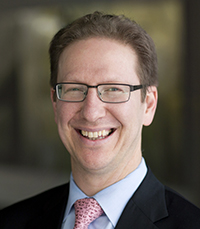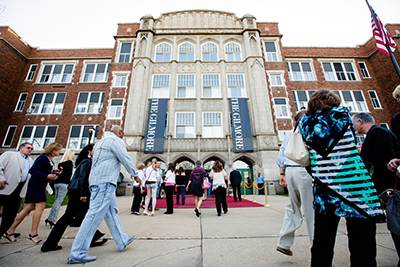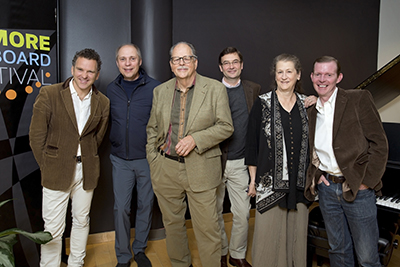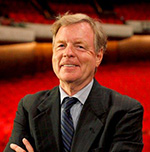Special Reports
The Grand Competition Evolution of the 21st Century
 Pierre van der Westhuizen knows his way around piano competitions. As a young pianist in his native South Africa, he participated in many of them before becoming a concert pianist, academic, arts administrator, and competition juror. In 2011, Van der Westhuizen, now 40, became CEO of the Cleveland International Piano Competition, which he transformed from a traditional, single competition into a full-fledged event that also includes a festival, educational and community outreach, and year-round programming. Currently he is in his second year as director of the Irving S. Gilmore International Keyboard Festival and Awards.
Pierre van der Westhuizen knows his way around piano competitions. As a young pianist in his native South Africa, he participated in many of them before becoming a concert pianist, academic, arts administrator, and competition juror. In 2011, Van der Westhuizen, now 40, became CEO of the Cleveland International Piano Competition, which he transformed from a traditional, single competition into a full-fledged event that also includes a festival, educational and community outreach, and year-round programming. Currently he is in his second year as director of the Irving S. Gilmore International Keyboard Festival and Awards.
Musical America: More and more competitions have been expanding, much as you transformed the Cleveland. Is this a trend?
Pierre van der Westhuizen: I think so, because two things have happened. One is that winning a piano competition now isn’t necessarily the fame-producing thing that people used to think it was. For me, the goal of a competition is not to create a superstar. The goal is to identify talent and potential. I also think that many organizations have gone back to the original impetus for competitions, which was to celebrate the piano and its repertoire.
MA: What are some other competitions that have moved to a festival model?
PvdW: One that immediately comes to mind is the Liszt Competition in the Netherlands. They recently announced that they are repositioning themselves by adding a festival. [For the first time, in 2020 the Competition will have a central theme: Beethoven, as seen through the eyes of Franz Liszt.] Another is the Leeds Competition in England. Following last year’s competition, they announced a festival addition, plus community outreach and other events.
 MA: How did expanding the Cleveland Competition into a festival affect fundraising?
MA: How did expanding the Cleveland Competition into a festival affect fundraising?
PvdW: A competition with winners and losers, from a philanthropic standpoint, is not necessarily a compelling concept. But celebrating the arts and promoting culture in the community, whether it be a competition or a concert series or outreach activities, in my experience appeals to foundations, companies, and individuals. In Cleveland, we almost doubled our revenue with the festival approach.
MA: Why don’t some funders like competitions?
PvdW: Well, if you attend a competition and fall in love with a certain contestant, there is the inevitable disappointment. Giving is a very personal thing; people give when they’re inspired. The disappointment can be difficult…. But if the competition is positioned as part of a festival that is focused on celebration, you can shift the narrative to go beyond winners and losers. (PHOTO: Entrance to the Keyboard Festival.)
MA: Many competitions are making video livestreaming of performances a priority. Is that happening at the Gilmore?
PvdW: Absolutely, and especially nowadays when livestreaming is part of everyday life. I think it will get to a point where it will be odd if you don’t do it. It’s an interesting dynamic, because some artists are wary of livestreaming and being recorded with no editing afterward. But your audience becomes bigger by a significant order of magnitude. We had the Korean pianist Seong-Jin Cho on our Rising Stars series, and that video livestream has been viewed more than 280,000 times, which just blows my mind.
MA: At the Cleveland you gave artists the choice as to whether livestreaming of their performances was archived or not. Have there been occasions where an artist didn’t want a performance online?
PvdDW: Yes, it happens more often than you might think. Sometimes an artist is just not happy with the way a performance went. I will never put anything up that an artist doesn’t feel comfortable with. Many competitions keep up livestreams even if contestants feel that they didn’t play well, but at the Cleveland if a contestant said he or she really didn’t like the way they played, we always took the performance down.

MA: There have been eight Gilmore Award recipients since 1991. Did they have competition pedigrees?
PvdW: Igor Levit [2018 winner] was one of the youngest Rubinstein medalists. Ingrid Fliter [2006] won the Chopin Competition. Kirill Gerstein [2010] also won at the Rubinstein. So yes, they’ve certainly seen the competition circuit.
MA: And you can’t really call the Gilmore Artist Award [with a prize of $300,000] a competition.
PvdW: True. At the Cleveland, the entire process is out there for the public to see in the competition. At the Gilmore, it’s all behind the scenes. The artistic advisory committee for the 2022 award has been formed [it is top secret], and we just sent out a letter to industry professionals all over the world asking for nominations. From those nominations we whittle the list down until we reach the three or four we will follow. [The artists themselves are unaware they are in the running.] We see these pianists in various settings—chamber music, solo, concerto—over an extended period of time. For me, that is one of the crucial differences between the Gilmore and competitions like the Cleveland and the Cliburn or the Tchaikovsky. Instead of 14, 15 days, we follow these people over a two- or three-year period. The Gilmore is proof that as a competition you have to grow as an organization and position yourself in the community as a partner in various endeavors. You can’t just pop up every few years and then disappear. It’s not a sustainable model.
MA: You have said that the worst thing a contestant can do is to play for the jury, yet I’ve interviewed competition winners who said they tried to determine what jurors wanted to hear.
PvdW: I know, but I think it’s a mistake. I always think of [Musical America 2019 Artist of the Year] Daniil Trifonov, whose teacher, Sergei Babayan, I know very well. When Daniil was winning competitions, Sergei would say that that was just Daniil being Daniil, that he just loved playing. You could tell the minute he walked onstage that he couldn’t care less who was adjudicating. He was just himself, he was just playing. I much prefer that over a calculated approach.
MA: What do you look for in a juror?
PvdW: An open mind. Somebody who is not wedded to his or her own opinion of the repertoire. Somebody who is willing to be convinced of different viewpoints. Somebody who is collegial. I look for people who are at the top of their profession either as an educator or a performer.
MA: There have been controversies at competitions over winners whose teachers were on the jury. Some competitions no longer have teachers as jurists. Is that a good idea?
PvdW: I think it’s a knee-jerk reaction to replace your jury with only performing pianists. In Cleveland, we always asked jurors to recuse themselves from voting on somebody who had been a student of theirs, and there was no discussion allowed in the jury room or elsewhere. I think you need a healthy balance. Educators have a good sense of the field of up and coming musicians, and they know every note inside-out.
MA: Competitions don’t have a great track record for choosing winners who go on to have glittering careers.
PvdW: I don’t think winning a competition ever automatically meant a long-lasting career. There’s so much more that goes into a career than just playing well. It’s an art and a business. There are market forces behind it. Even signing with management and landing a recording deal doesn’t mean you’ll have a major career. Only time will tell.
 THE GILMORE
THE GILMORE
Based in Kalamazoo, MI , the Irving S. Gilmore International Keyboard Festival and Awards, aka, “The Gilmore,” is a multi-pronged operation. The biennial Gilmore Keyboard Festival is a 100-concert event that brings some 50 major talents—from Jeremy Denk to 2006 Gilmore Artist Ingrid Fliter—together for three weeks of concerts and master classes. There are also series devoted to rising stars and piano masters, and two biennial Young Artist Awards of $25,000 each. The most coveted prize is the quadrennial Gilmore Artist Award, of $300,000, chosen by an anonymous committee, as explained in this article by Gilmore CEO Pierre van der Westhuizen.
(PHOTO: 2018 Artistic Advisory Committee: Numa Bischof Ullmann, artistic and executive director, Lucerne Symphony Orchestra; Christopher Roberts, president and CEO, Robisong Consultants; Dan Gustin, former director of the Gilmore; Barry Kempton, artistic and executive director, Schubert Club; Elizabeth Ostrow, artistic planning consultant and recording producer; David Baldwin, artistic and executive director, Fontana Chamber Arts. Credit: Couresy The Gilmore.)
 John Fleming, a regular contributor to Musical America, is president of the Music Critics Association of North America. He writes for Classical Voice North America, Opera, and others. For 22 years, he covered the Florida music scene as performing arts critic with the Tampa Bay Times.
John Fleming, a regular contributor to Musical America, is president of the Music Critics Association of North America. He writes for Classical Voice North America, Opera, and others. For 22 years, he covered the Florida music scene as performing arts critic with the Tampa Bay Times.





 FEATURED JOBS
FEATURED JOBS

 RENT A PHOTO
RENT A PHOTO


